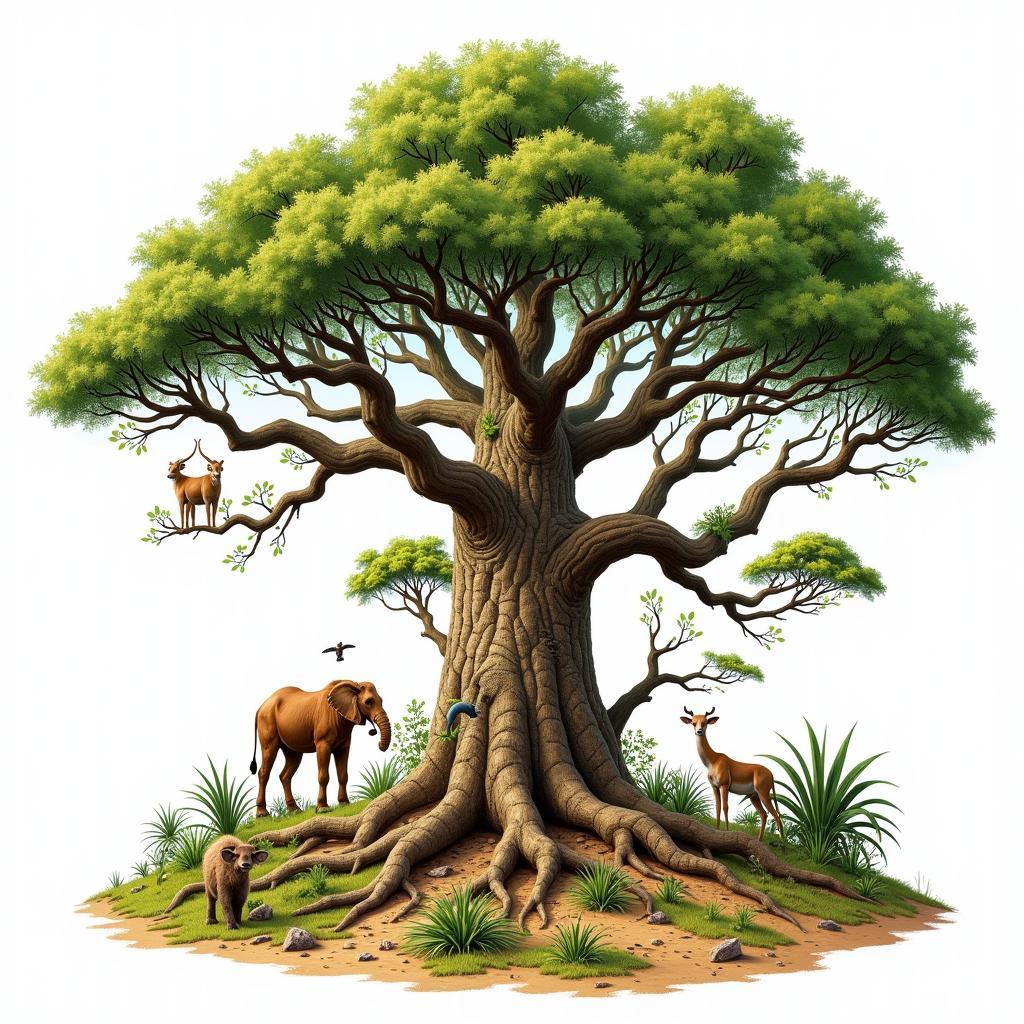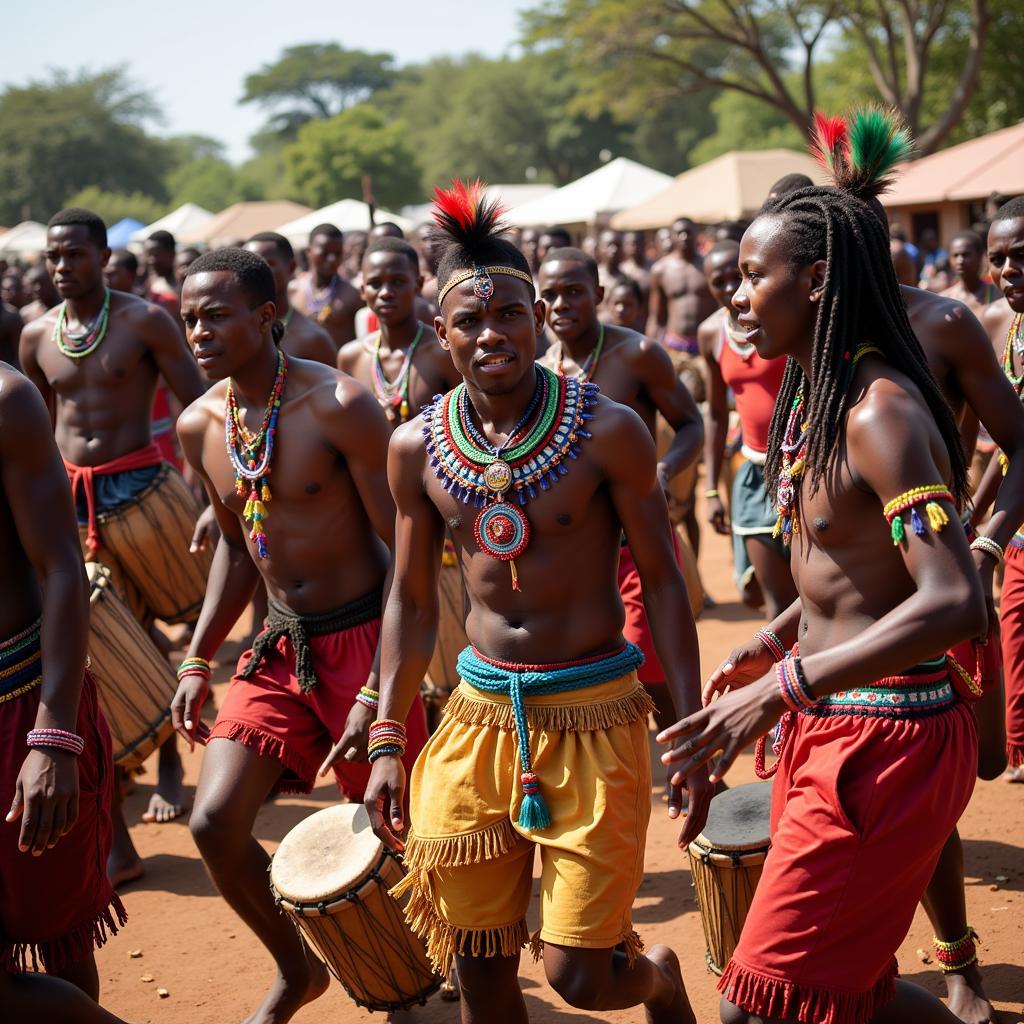Exploring West African Currency: A Comprehensive Guide
West African Currency is a fascinating reflection of the region’s diverse history, economies, and cultural ties. From the CFA franc to the Liberian dollar, the currencies used in West Africa tell a story of colonial influence, economic integration, and the ongoing pursuit of financial stability. This exploration delves into the nuances of West African monetary systems, examining their evolution, current status, and future prospects. We’ll uncover the stories behind the banknotes and coins, exploring their symbolism and significance within the vibrant tapestry of West African Life.
The West African Monetary Zone (WAMZ) represents a significant step towards regional economic integration, aiming to introduce a single currency, the “eco,” in the future. This ambition faces challenges, but the potential benefits for regional trade and economic growth are substantial. Understanding the historical context of West African currencies is crucial to grasping the complexities of the present and the potential of the future. Let’s journey through the monetary landscape of this dynamic region, uncovering its intricacies and exploring the diverse currencies that shape its economic landscape. You can find more information about African capitals beginning with N at african capitals beginning with n.
The CFA Franc: A Legacy of Colonial Influence
The CFA franc, used by several West African countries, is a legacy of French colonialism. It’s divided into two zones: the West African CFA franc (XOF) and the Central African CFA franc (XAF). Both are pegged to the euro, providing a degree of stability but also raising questions about monetary sovereignty. The CFA franc’s history is intertwined with France’s economic and political influence in the region, a relationship that continues to be debated and reevaluated.
Understanding the CFA franc’s complexities is essential to grasping the financial landscape of many West African nations. Its enduring presence highlights the lasting impact of colonial history on the region’s economic structures.
Beyond the CFA Franc: Other West African Currencies
Not all West African countries use the CFA franc. Nations like Nigeria, Ghana, Liberia, and Guinea have their own independent currencies: the naira, cedi, Liberian dollar, and Guinean franc, respectively. Each currency reflects the unique economic circumstances and historical trajectories of these nations. For example, the Nigerian naira, being the currency of Africa’s largest economy, plays a crucial role in regional trade and finance. For more insights on African countries, capitals, and currencies, refer to this helpful PDF: african countries and capitals and currency pdf.
These independent currencies represent the diverse economic landscape of West Africa, highlighting the region’s dynamic and complex financial systems. Their individual stories offer a glimpse into the unique challenges and opportunities faced by each nation.
The Eco: A Vision for a Unified Currency
The proposed “eco” aims to be a single currency for the West African Monetary Zone (WAMZ). Its realization would represent a major step towards economic integration, potentially boosting regional trade and simplifying cross-border transactions. However, significant hurdles remain, including harmonizing economic policies and ensuring political consensus among member states.
What are the major West African currencies?
The major West African currencies include the CFA franc (XOF and XAF), Nigerian naira, Ghanaian cedi, Liberian dollar, and Guinean franc.
How does West African currency reflect colonial history?
The CFA franc’s ties to the French treasury and the euro reflect the lasting impact of French colonialism on the region’s monetary policies.
What is the future of West African currency?
The proposed “eco” represents a potential future of a single, unified currency for the West African Monetary Zone, though its implementation faces significant challenges. For a comprehensive list of African countries and their currency symbols, check out this resource: african countries currency symbols.
Dr. Adebayo Olufemi, a renowned economist specializing in African monetary policy, notes, “The eco’s success hinges on the commitment of member states to fiscal discipline and regional cooperation.”
Conclusion
West African currency is a complex and evolving landscape. From the legacy of the CFA franc to the aspirations of the eco, the region’s monetary systems reflect its history, economic realities, and future ambitions. Understanding these currencies is crucial to navigating the economic dynamics of this vibrant and diverse region. West African currency continues to be a key factor in the region’s development, and its future trajectory will undoubtedly shape the economic landscape for years to come. For more information about Monrovia as a capital city, you can visit african country capital monrovia.
FAQ
- What is the most widely used currency in West Africa? The CFA franc is the most widely used currency in West Africa.
- What are the challenges facing the eco? The eco faces challenges related to economic harmonization and political consensus among member states.
- Why is understanding West African currency important? Understanding West African currency provides insights into the region’s economic history, current realities, and future potential.
- What are the benefits of a unified currency? A unified currency can boost regional trade, simplify transactions, and promote economic integration.
- How does the CFA franc impact West African economies? The CFA franc provides stability but also raises concerns about monetary sovereignty.
- What are the alternatives to the CFA franc in West Africa? Alternatives to the CFA franc include the Nigerian naira, Ghanaian cedi, Liberian dollar, and Guinean franc.
- How can I learn more about specific West African currencies? Further research on individual currencies can provide deeper insights into their specific characteristics and impact.
Need more information about African Countries and Capitals in English? Check out this link: african countries and capitals in english.
For support, contact us 24/7: Phone: +255768904061, Email: kaka.mag@gmail.com, or visit us at Mbarali DC Mawindi, Kangaga, Tanzania.


